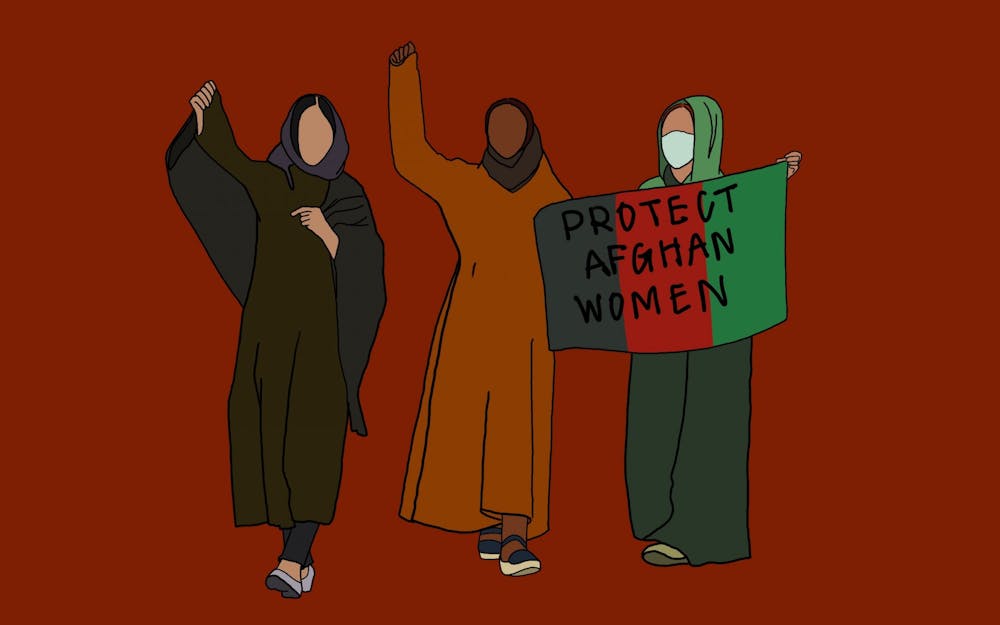Editor’s Note: This story includes mention of sexual violence
For months now, the Taliban has once again implied multiple restrictions on Afghan women's rights. In August of last year, the Taliban took back power in Afghanistan, and despite the group claiming to be less extreme, they have brought back a slew of restrictions against Afghan women.
In the past two decades, these women have been fighting against the history of their religion and expanding opportunities for Afghan women to go to school, work and travel abroad to find work in other countries.
Before the Taliban came back into power and were then defeated in 2001, there was a measurable improvement in women’s rights and their position in Afghan society. Since then Afghanistan has seen more women in politics, teachers, doctors, business owners and more. This change came with the help of the international community to help spread awareness of how these women were treated under the Taliban’s control
But now, their progress and hard work have been set back.
Related: [Black Voices: Even in war, racism prevails]
The Human Rights Watch reported in October that the Taliban has restricted women from furthering their education beyond primary school and are closing secondary schools.
Since then, women and young girls have been protesting near the Ministry of Education in Kabul. Wearing their uniforms and bringing their textbooks, they gathered and brought signs reading “Education is our fundamental right, not a political plan.” When the Taliban showed up, they fled in fear of being beaten.
The Taliban has shown up to multiple protests where women have been peacefully protesting and been accused of killing women, mutilating their bodies, and there are even rumors of gang rapes.
UNICEF estimates that 129 million girls are not in school worldwide, but their findings revealed girls' education leads to higher national growth, lower rates of child marriages and child mortality, and increased lifetime earnings for women.
Western governments and the United States administration are outraged at the Taliban’s decision to cut women’s education. The administration in Washington has canceled meetings which could impact bilateral contact and engagements with Afghanistan.
If the Taliban doesn’t reverse its decision, “it will have an inevitable impact on the Taliban’s prospects of gaining political support and legitimacy either at home or abroad,” a joint statement with U.S. Secretary of State Anthony Blinken and other foreign ministers of the United Kingdom read. This could harm Afghanistan's prospects for social cohesion and economic growth.
Afghan women are looking at every possible avenue to flee their country in fear of the future under Taliban leadership. Some want to move to further their education at a U.S. university and study abroad. Others want to renew their passports, but with government officials denying their travel with no explanation why they are left hopeless on what to do next.






